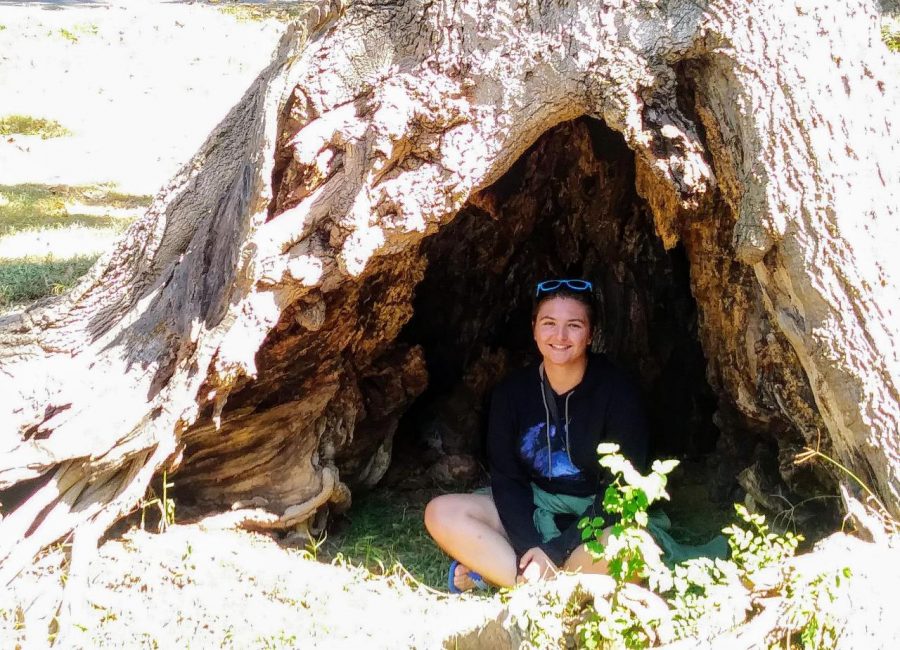Casey Miller, senior
A lot of the changes that the school is making are currently works-in-progress, so these improvements are probably not visible to the average student population. However, some of our goals include creating a mural from the senior class in the 800s lounge, incorporating more lessons for students on behavior and conflict-resolution, and being more lenient with grades and attendance for those struggling with mental health problems. I couldn’t be more proud that the Student Wellness Advocacy Group was created. Hearing the discussions, data-collecting, and goals between students, teachers, and administrators alike makes me hopeful for the future of how Hunterdon Central can better address mental and emotional well-being in day-to-day life. It’s really uplifting to see this problem being taken so seriously. We’re a relatively new group, so we probably haven’t immediately impacted a large amount of students, but I know for me, it’s brought me a newfound drive, and a hope that students can give voice to their problems, and they can be heard.
There are definitely a number of reasons as to why I wanted to be part of improving student wellness.
Firstly, and this is rather honest, but I have never been the most mentally-well person in the world. I struggle a lot with anxiety and a certain form depression (dysthymia, basically high-functioning and long-term). Having this firsthand experience has grown me into being more empathetic and compassionate towards others. And I’m definitely in an improved place now, but when I needed it, I know that my first-hand experience with student wellness at the school was not very accommodating.
Sophomore year, we all lost a very close friend, Ally, to suicide, and that was by far the hardest point in my life. My grades slipped, I became irritable, and while many teachers were comforting and kind (namely Ms. Stutzman from the English Department), some actions from other teachers were less than ideal. There was a chemistry teacher who yelled at my entire class about how dealing with a traumatic death “wasn’t an excuse to fail a quiz.” Another math teacher pulled me aside and told me that I should be going to her class instead of going to counseling because it was more important to learn what she was teaching. Then, after a month or so, I began to get pushed away from the counseling services, and I was only permitted to come in there “if I absolutely needed it.” Which, even though it wasn’t true, my mind I interpreted as, “don’t come back.” I’m not saying any of this to be negative or to point out past flaws. There are many students who got the help they needed, and my younger self could have absolutely taken more steps to be helped. I remember this so I can make sure something like that would never happen to anyone ever again. Nobody should face things like that in such a vulnerable state. And I firmly and wholeheartedly trust that with the things we’re working on in SWAG, I don’t think they’ll ever have to. 🙂
Secondly, this sounds a little foolish, but I want to improve wellness because it’s the right thing to do.
I can’t quite remember who first pointed it out to me, but whenever I ask someone how they’re doing, they always respond with, “I’m tired.” Sometimes an, “I’m fine,” or a quick, “I’m good, how are you?” But, it’s rarely something particularly positive or uplifting.
At the phrase “student wellness,” my mind used to go specifically to students suffering with mental illness and trying to help alleviate the stress and difficulty that school can add to someone dealing with something so taxing on the mind. I believe strongly in mental health awareness and helping students manage mental illness and trauma, though now, I’ve realized that there’s another part to it.
We have an extremely large student body, and many of them go day-to-day drained, unmotivated, and feeling more negative than positive. I now believe that student wellness is how we change our daily lives into creating a more motivating, nurturing environment, while also teaching students healthy coping mechanisms to prevent negative thought patterns that lead to worsening mental states. We have the ability to transform our school into a place that more people feel excited to learn, instead of feeling like it’s a pointless chore.
I’m lucky enough to be in a position where I can give voice to people, let their problems be heard, and move towards solutions to create a strengthened, supported community. How can I pass up that opportunity?

